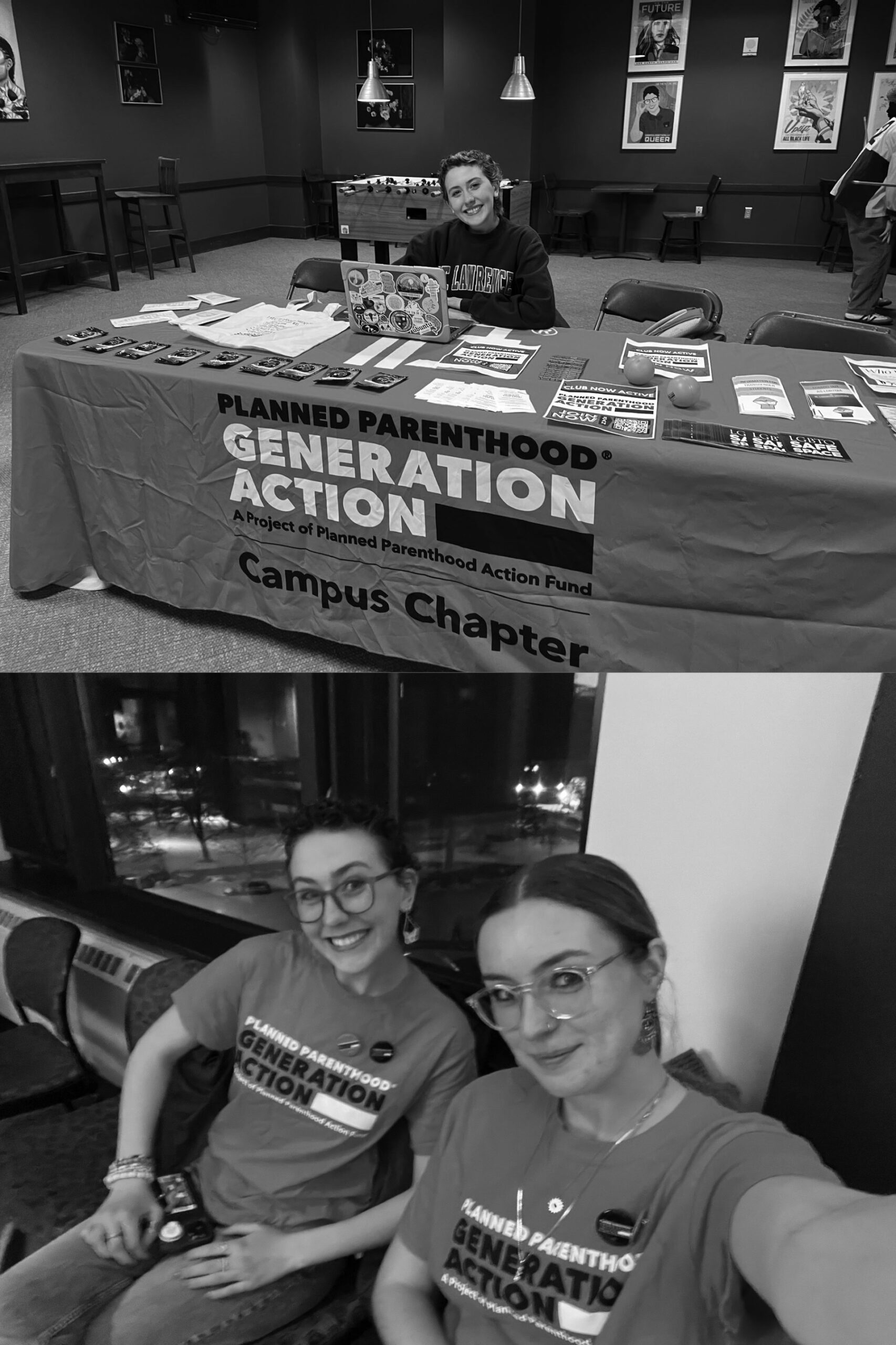Happy Daze: Planned Parenthood Generation Action Takeover!
In 2019, the state of Alabama passed one of the nation’s most restrictive abortion laws, the Human Life Protection Act. Enacted in May and set to go in place September 2019, this law banned most abortions at any stage of pregnancy including cases of rape or incest, the only exception being if the carrier’s health is at risk. In 2022, the overturn of Roe v. Wade, in which the U.S. Supreme Court granted the right to have an abortion under the 14th Amendment of the right to bodily autonomy, caused Alabama’s Human Life Protection Act to go into full effect. What are its ramifications? The new ruling in Alabama will be more catastrophic than we know. Let’s talk about it.
For those of you who don’t know me, my name is Hannah Crow and I am a senior and co-president of Planned Parenthood Generation Action of the SLU with co-president Billie McClosky, who is also a senior. Together, we have worked to get PPGA back to organizational status and active. PPGA has historically been a club on campus that was very involved with the campus community, partnering with the local Planned Parenthood to provide free hygiene materials like condoms, menstrual products, education and awareness of sexual reproductive health and rights for all. After COVID-19, PPGA faced hardships with transitions and deadlines and became inactive. Now, members of PPGA are working to get funding from the Student Activities Fund restored so we are able to have conversations surrounding difficult topics like the Human Life Protection Act. Like Planned Parenthood, the club takes the stance that it should be a person’s choice as to whether or not they should receive an abortion, depending on what is right for them. We don’t discriminate or judge; our job is to increase the availability of accessible and affordable healthcare for all who need it. PPGA advocates for bodily autonomy for all (including the right to have or not to have a child) and recognizes this act limits the safety of those choosing to have abortions in the state of Alabama.
The Human Life Protection Act made most abortions illegal under the assumption that a fertilized embryo (2-8 weeks) and fetus (thereafter) are considered a life that it has protected rights. The basis of this argument is important as it provided a foundation for HB454, an act in Alabama that criminalizes abortion as murder. Under this act, authorities can trial people for murder or endangerment of both a fetus and an embryo. This is not the first time we have seen this legislator in Alabama as cases like Alabama v. Jones, covered by the Washington Post, the court charged Jones with manslaughter after being shot in the abdomen and suffering a miscarriage. This begs an important question, is life conceived at birth, at conception, or somewhere in between?
We must ask questions like these especially in the face of a recent Supreme Court Ruling in February 2024 stating that frozen embryos are considered life and thus can be held legally responsible for destroying them. This not only affects those actively trying to seek abortions or those choosing not to have a child but also those who are trying for a child and use services like IVF to avoid miscarriage. According to Yale Medicine, IVF stands for “In Vitro Fertilization.” It basically is a service that extracts reproductive materials, conducts insemination, freezes embryos or oversees incubation, and, if successful, transfers the embryo to a uterus to implant. This is common for those who have trouble conceiving for a variety of reasons and is fairly common in the United States. From freezing embryos to implantation, many things can go wrong, and often, to get a successful pregnancy, it requires multiple tries. The new Alabama ruling threatens this entire process and allows healthcare professionals and individuals to be held responsible for the loss of an embryo.
Just as much as a person cannot control instances of rape or incest, a person cannot control if they can conceive or not. There are clear gray areas that should be taken into account, but Alabama having very few exceptions does not accommodate this and endangers not only a person’s well-being but livelihood. Take, for example, my situation. As a survivor of Stage 4 Hodgkin Lymphoma, a cancer diagnosis does not only mean a life-threatening disease, but depending on the type and stage, it can mean premature menopause and permanent damage to all the ova and ovaries that a person has. In fact, many chemotherapy treatments have proven to be detrimental to fertility, according to a study published by the National Library of Medicine, causing issues conceiving or sometimes complete infertility with rates as high as “60 percent in male and 40 percent in female subjects” for treatments common for lymphoma and leukemia. Thus, many cancer survivors have to utilize IVF if they wish to conceive, and should be thought about when conversations of this nature are brought up.
Clearly, the new ruling in Alabama affects not only the reproductive freedoms of those seeking abortions but also negatively impacts those who could have miscarriages or cannot conceive. This leads to the question, is this ruling another way to police certain groups’ access to reproductive freedoms and rights? Will the elimination of this care lead to more reproductive injustices for all? If this is something you care about, PPGA tables Mondays and Thursdays 4-6 p.m. in the Student Center or join our listserve on Presence!



